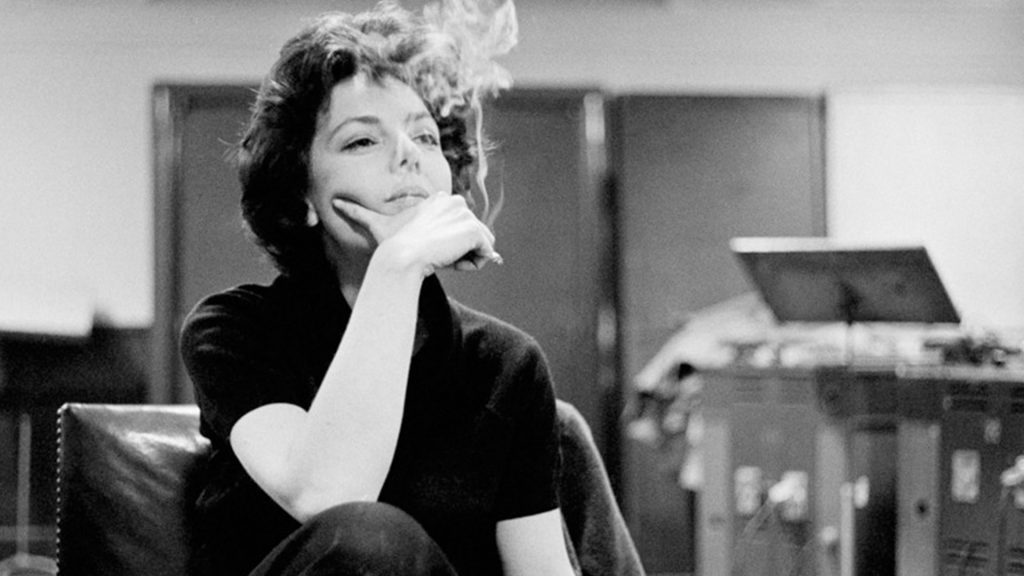It seems that film history is finally being amended to accurately represent the contributions of women filmmakers. People like Shelley Stamp are working very hard to draw critical attention to overlooked women filmmakers with releases such as Pioneers: First Women Filmmakers and Ben Model’s upcoming anthology of the films of Alice Howell. And these are but two recent groundbreaking examples of this monumental shift in our shared cinematic identity.
So it seems fitting to take stock in general in how men have dictated, for so long, what we see and how we see it. For too long have we gendered genres and relegated women filmmakers to the outskirts of distribution. It’s time we acknowledge the tremendous cinematic gifts the careers of artists like Sara Driver, Helma Sanders-Brahms, Věra Chytilová, Ulrike Ottinger, and Elaine May have bestowed upon us for decades.
Personally, though I love the films of Chytilová, Driver, Ottinger and Sanders-Brahms very deeply, none of these artists holds quite the special place Elaine May does in my heart. Partly this is due to her brilliant performance in Clive Donner’s film Luv (1968) that saves the film, and partly because I have taught Mikey and Nicky (1976) so many times. Mikey and Nicky is one of those rare films that, no matter how many times you teach it, there are always fresh discoveries and new experiences to be found. I’m very glad that The Criterion Collection will be bringing this film back into print.

Elaine May and Mike Nichols once were the comedy team Nichols & May. Through the 1960s they appeared on television, had a show on Broadway directed by Arthur Penn, did commercials and released some of the best comedy albums ever made. But by the middle of the decade, Mike Nichols would be directing his first and best picture, Who’s Afraid Of Virginia Woolf? (1966). Since then, he has gotten a lot of attention as a director having made such varied films as The Graduate, Day Of The Dolphin, Carnal Knowledge (which I think is his second best feature), Heartburn, and many many others. But it’s been the films of Elaine May, four feature films that have struck me and stuck with me over the years.
When I was in fourth grade I began seeking out Charles Grodin movies. It was on this quest that I happened upon a VHS of Elaine May’s The Heartbreak Kid at a public library (a year and a half ago I had the privilege to see a film print of A New Leaf). I liked the film. As I got older and wiser, roads kept leading me back to Elaine May’s films. And every time I saw, or re-watched one of her films, I liked it more and understood something new about it (this just happened when I saw Mikey & Nicky again two months ago). Mike Nichols’ films have never done this to me.
May’s films are more honest and real than she is given credit for. Her ability to create a character in collaboration with an actor is something uncanny, and only ever mentioned in the memoirs of Charles Grodin, or interviews with John Cassavetes and Peter Falk. So why doesn’t she enjoy the critical praise and unconditional fandom of Mike Nichols? I hope it’s not because she’s a woman; that would just be terrible.
Until recently, Elaine May existed as a kind of cult figure. After her film Ishtar bombed at the box office, she never made another film and entered into a kind of obscurity (though she continued her work as a script doctor and playwright). In the last ten years her status has changed as critics reevaluated her work and companies like EUREKA! and HVE have released well curated special editions of her films to home video, sparking a renewed interest in her work with audiences. Even Ishtar has managed a critical reevaluation (with a release from Powerhouse Films on the horizon), and Jonathan Rosenbaum isn’t alone anymore in his love of that strange and wondrous satire. So I ask that you give her a fair chance and seek out one of her films this weekend. I assure you it will be more than worth it.
